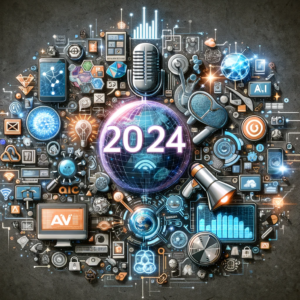Alright, buckle up because I’m about to take you on a ride through one of the coolest concepts in digital marketing right now: Metaverse Marketing. Imagine this: a world where virtual reality meets real-life, where you can hang out with friends, explore new places, and even shop for your favorite brands—all without leaving your couch. That’s the metaverse in a nutshell, and let me tell you, it’s changing the game when it comes to how companies connect with their customers online.
At its core, the metaverse is a collective virtual shared space, created by the convergence of virtually enhanced physical reality and physically persistent virtual spaces. It encompasses a range of interconnected virtual worlds, augmented reality experiences, and digital assets, where users can interact with each other and digital objects in real-time. With the growing popularity of virtual reality (VR) and augmented reality (AR) technologies, the metaverse has become a thriving ecosystem for socializing, gaming, entertainment, and now, marketing.
One company leading the charge in metaverse marketing is Nike. Leveraging the immersive capabilities of virtual reality, Nike has created virtual stores within popular metaverse platforms like Decentraland and Roblox. These virtual stores allow users to explore Nike’s latest products, customize their avatars with branded apparel, and even participate in virtual events such as sneaker launches and fitness classes. By establishing a presence in the metaverse, Nike not only enhances its brand visibility but also fosters deeper connections with tech-savvy consumers who value immersive experiences.
Similarly, Microsoft has embraced metaverse marketing through its acquisition of the popular virtual world platform, Minecraft. With over 145 million active players worldwide, Minecraft provides a vast virtual canvas for brands to engage with a diverse audience. Microsoft has collaborated with various brands, including Star Wars and Adidas, to create branded experiences within the Minecraft universe. These collaborations range from in-game events and virtual merchandise to interactive storytelling campaigns, allowing brands to tap into the creativity and imagination of Minecraft’s player community.
Another notable example of metaverse marketing comes from Gucci, a luxury fashion brand known for its avant-garde approach to digital innovation. Gucci recently launched its virtual 3D sneakers, which users can purchase and wear within the virtual world of Roblox. These digital sneakers not only serve as status symbols within the metaverse but also blur the lines between physical and digital fashion. By embracing virtual fashion experiences, Gucci demonstrates its commitment to staying at the forefront of digital trends and appealing to a younger, digitally native audience.
In addition to consumer brands, Meta Platforms, Inc. (formerly Facebook) is heavily investing in metaverse marketing through its social VR platform, Facebook Horizon. Facebook Horizon allows users to create and explore virtual worlds, interact with friends, and attend virtual events. Brands can leverage Facebook Horizon to host virtual product launches, branded experiences, and immersive advertisements, reaching users in a highly engaging and interactive environment.
Beyond retail and entertainment, the metaverse presents exciting opportunities for industries such as real estate, education, and healthcare. Sotheby’s International Realty, for instance, has introduced virtual property tours and immersive 3D walkthroughs within the metaverse, allowing prospective buyers to explore luxury real estate listings from anywhere in the world. Similarly, educational institutions like Harvard University are exploring virtual classrooms and collaborative learning environments within platforms like Second Life, providing students with immersive and interactive learning experiences.
As metaverse marketing continues to evolve, brands must navigate ethical considerations and privacy concerns associated with virtual environments. Maintaining user trust and ensuring a safe and inclusive metaverse experience should be top priorities for brands venturing into this new frontier. By embracing transparency, data privacy best practices, and inclusive design principles, brands can build meaningful connections with users and foster a sense of community within the metaverse.
In conclusion, Metaverse Marketing represents a paradigm shift in digital marketing, offering unprecedented opportunities for brands to engage with consumers in immersive and interactive ways. From virtual stores and branded experiences to virtual fashion and virtual events, the metaverse opens up a world of possibilities for brands willing to embrace innovation and creativity. By leveraging the power of virtual reality, augmented reality, and interconnected digital spaces, brands can create memorable experiences that resonate with audiences across the metaverse. As we continue to explore the potential of this emerging frontier, one thing is clear: the metaverse is not just the future of digital marketing—it’s already here.
For further reading on Metaverse Marketing:




